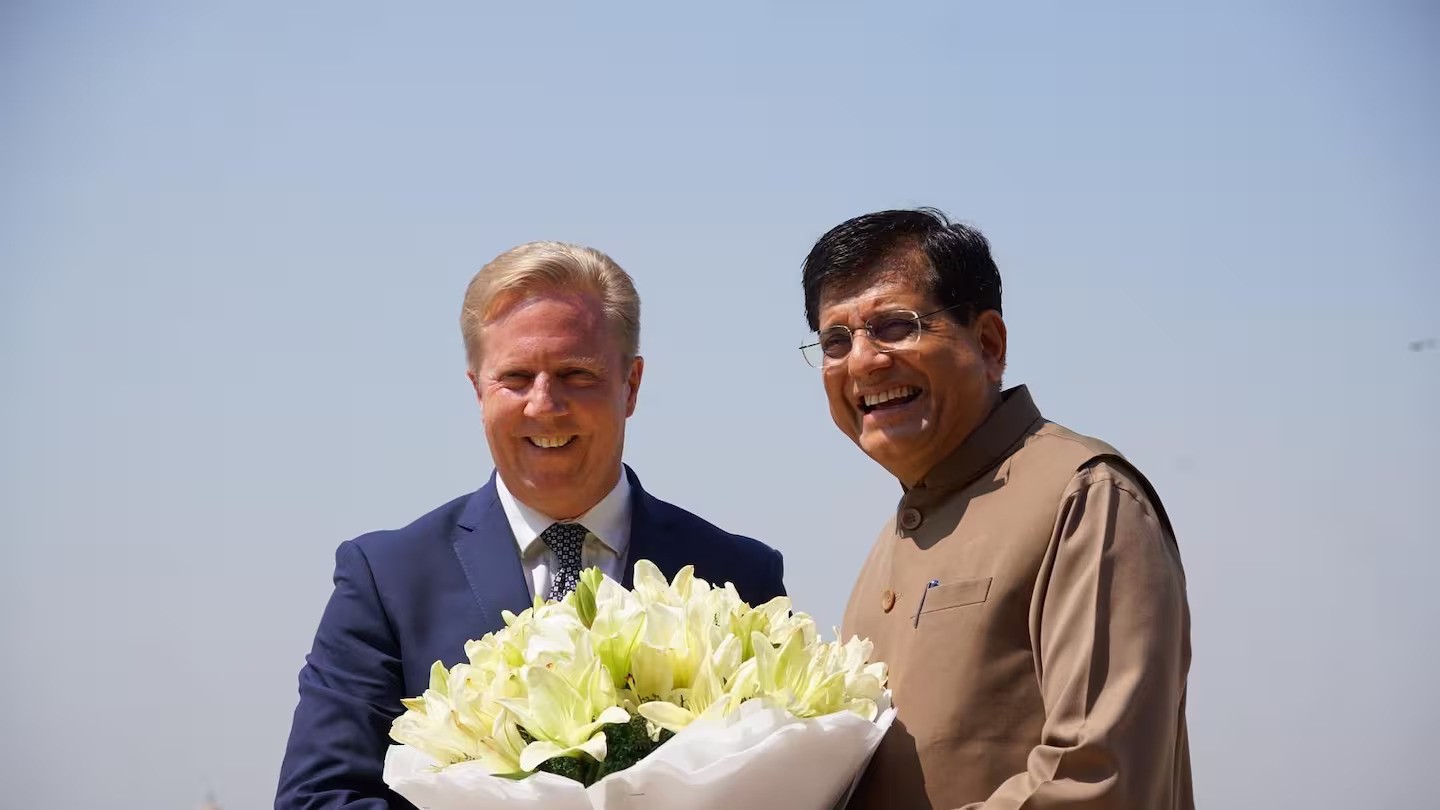Business
India-New Zealand Trade Deal Progresses Towards 2026 Agreement

Negotiations for a free trade agreement (FTA) between India and New Zealand are advancing, with officials expressing optimism about reaching a deal by early 2026. Prime Minister Chris Luxon has highlighted ongoing discussions, while New Zealand’s Trade Minister Todd McClay engages with his Indian counterpart to facilitate progress.
Government Commitment to Trade Relations
The push for a strengthened trade relationship comes as both nations recognize the potential economic benefits of such an agreement. During recent dialogues, McClay and Indian officials have explored various sectors where enhanced cooperation could yield substantial trade growth.
Edwin Paul, chair of the India New Zealand Business Council, noted that the discussions are yielding promising signs. He emphasized the importance of businesses beginning to strategize for the opportunities that a new trade deal will create. “The likelihood of securing an FTA by early 2026 is becoming more tangible,” Paul stated, reflecting the sentiments shared by both governments.
As the negotiations unfold, businesses are encouraged to consider how they might benefit from reduced tariffs and increased market access. The expected FTA could mark a significant step towards bolstering trade between the two countries, which already enjoy a strong relationship.
Potential Economic Impact
According to estimates, the trade agreement could significantly enhance bilateral trade flows, potentially increasing them by millions of dollars. New Zealand exports to India have been steadily growing, with key sectors including agriculture, dairy, and technology standing to benefit from improved trade conditions.
New Zealand’s government has been proactive in seeking new markets, especially in the wake of global economic changes. An FTA with India could provide New Zealand businesses with a competitive edge in one of the world’s fastest-growing economies.
In addition to economic benefits, both countries are hopeful that a formal agreement will strengthen diplomatic ties and foster collaboration on broader issues such as climate change, technology exchange, and cultural cooperation.
As the negotiations progress, stakeholders from various industries are poised to contribute insights that may shape the final agreement. Paul encourages businesses to stay informed and engaged as the timeline for the FTA unfolds.
The next round of discussions is anticipated to take place in the coming months, where further details and commitments are expected to emerge. The outcome of these negotiations will be closely watched by industry leaders and policymakers alike, as they seek to capitalize on the opportunities presented by a formal trade partnership.
-

 Sports2 months ago
Sports2 months agoNetball New Zealand Stands Down Dame Noeline Taurua for Series
-

 Entertainment2 months ago
Entertainment2 months agoTributes Pour In for Lachlan Rofe, Reality Star, Dead at 47
-

 Entertainment1 month ago
Entertainment1 month agoNew ‘Maverick’ Chaser Joins Beat the Chasers Season Finale
-

 Sports1 week ago
Sports1 week agoEli Katoa Rushed to Hospital After Sideline Incident During Match
-

 Sports2 months ago
Sports2 months agoSilver Ferns Legend Laura Langman Criticizes Team’s Attitude
-

 Politics1 month ago
Politics1 month agoNetball NZ Calls for Respect Amid Dame Taurua’s Standoff
-

 Entertainment2 months ago
Entertainment2 months agoKhloe Kardashian Embraces Innovative Stem Cell Therapy in Mexico
-

 Sports6 days ago
Sports6 days agoJamie Melham Triumphs Over Husband Ben in Melbourne Cup Victory
-

 World3 months ago
World3 months agoPolice Arrest Multiple Individuals During Funeral for Zain Taikato-Fox
-

 Sports3 months ago
Sports3 months agoGaël Monfils Set to Defend ASB Classic Title in January 2026
-

 Entertainment1 month ago
Entertainment1 month agoTyson Fury’s Daughter Venezuela Gets Engaged at Birthday Bash
-

 Sports1 month ago
Sports1 month agoHeather McMahan Steps Down as Ryder Cup Host After Controversy




















